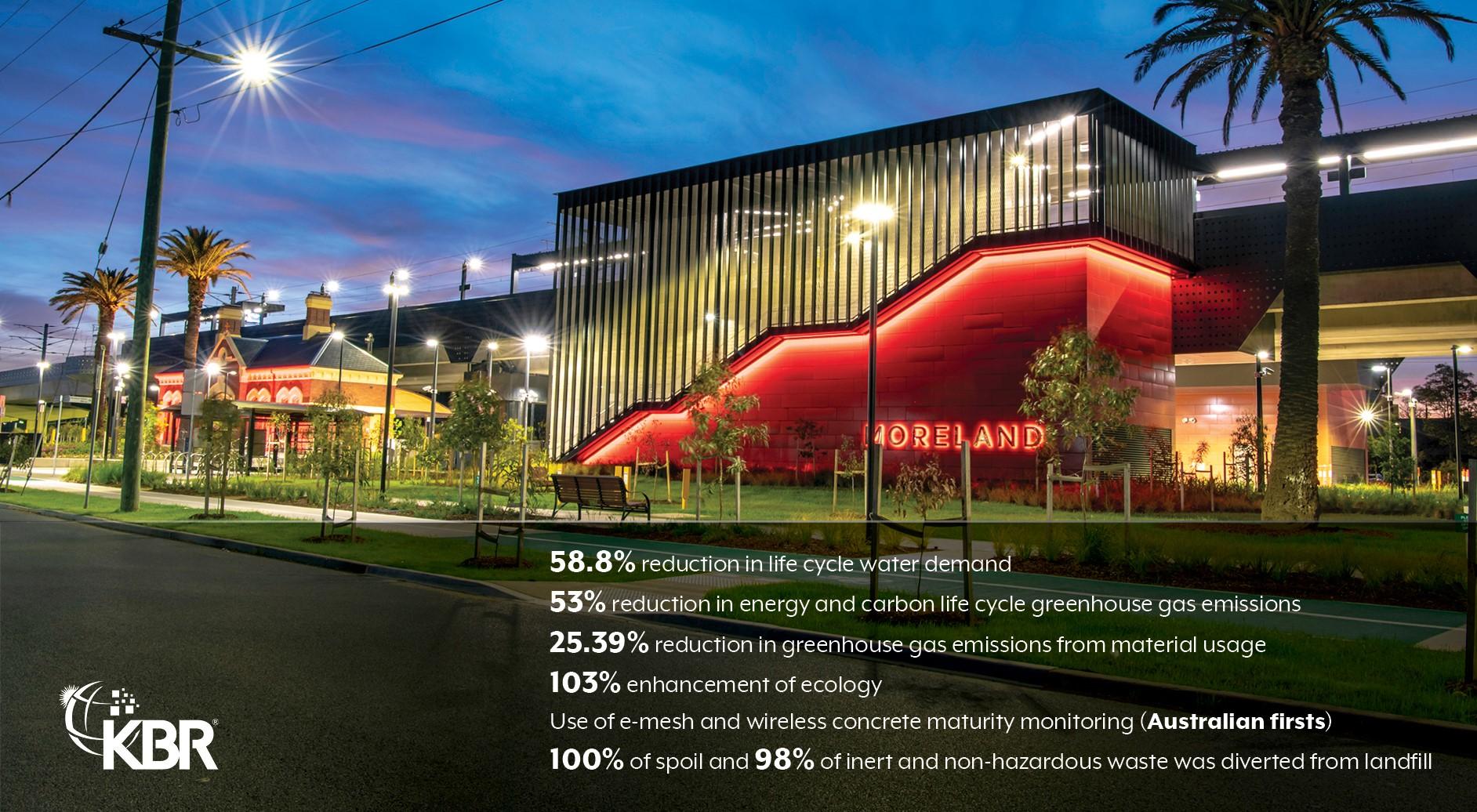KBR and Partners Receive Leading Sustainability Ratings for Greener Rail Network
KBR team earn two Australian firsts by the nation’s top infrastructure sustainability verifiers
KBR applies its Zero Harm commitment to the environment by becoming an industry leader in sustainable solutions – and we’re reeling in the results in Australia.
As part of the North Western Program Alliance (NWPA), KBR was recently awarded two Australian first sustainability ratings for the Bell to Moreland Level Crossing Removal Project by the nation’s top sustainability rating systems for the planning, design, construction and operation of infrastructure.
The project received an As Built rating of 98 from the Infrastructure Sustainability Council (ISC), the highest rating ever awarded by ISC. ISC ratings are scored out of 110 and are calculated by assessing sustainability elements, covering everything from procurement to environmental management, stakeholder participation, climate change resilience, community health and wellbeing, as well as the design and protection of heritage, and urban landscapes.
In addition, internationally recognised sustainable outcome verifier Green Building Council of Australia (GBCA) has awarded Coburg Station a 6 Star Green Star As Built rating, deeming it the first train station in Australia to be awarded 6 stars.
These ratings both supersede the Alliance’s previous Australian first ratings for the Reservoir Level Crossing Removal Project, which earnt an ISC As Built rating of 89 and 5 Star Green Star GBCA rating.
Cassandra Wadrop, Sustainability Development Lead on the North Western Program Alliance, says a proactive and integrated approach to sustainability is the key to achieving these results. “Our team of sustainability experts continue to strive for excellence and find new and innovative ways of doing things. By integrating sustainability across all levels and stages of the projects we deliver, effective and sustainable solutions can be achieved. To set the framework for these outcomes, sustainable governance and decision making must be established from project commencement.”
Completed in late 2021, the Bell to Moreland Project was the Alliance’s fifth work package on the Level Crossing Removal Program. The Alliance partners designed and constructed two new train stations and removed four dangerous level crossings by elevating the rail line onto a continuous elevated rail bridge in Melbourne’s north.
The project has already increased safety and improved capacity and traffic flow for the local community. Boasting a range of environmental sustainability outcomes, the project includes the use of eMesh, energy and water monitoring systems, solar panels at Coburg and Moreland Stations, and a significant reduction in greenhouse gas emissions, which ensures the infrastructure is climate resilient for future generations.
Beyond this, the Alliance has also built 2.5kms of new open space, walking and cycling paths with bike repair stations, active equipment, playgrounds, and dog park. Importantly, the team worked alongside Traditional Owners to deliver Indigenous co-design outcomes, integrating cultural patterns into the design process, including a Yarning Circle incorporated into the landscaping.
“At KBR, we adopt a holistic view of sustainability. Green infrastructure doesn’t just mean it is environmentally sound – it’s also about embedding social and economic sustainability into the project to ensure the best outcomes for the places our communities live, work and play now and into the future,” Cassandra says.
To continue providing these outcomes, the Alliance is pushing ahead with several other level crossing removal projects at Glenroy, Preston and its most recently awarded work package, Pakenham, which will remove three railroad level crossings, deliver two new stations for Pakenham, and provide open green spaces for the community.
“We are delighted to share this success with our partners on the North Western Program Alliance,” says Wayne Nolan, Vice President, Infrastructure Services Australia. “Our Infrastructure Services business is focussed on delivering industry leading sustainable solutions and we’re proud to be part of Melbourne’s ongoing prosperity as we continue to deliver a greener rail network with high quality, sustainable outcomes.”




